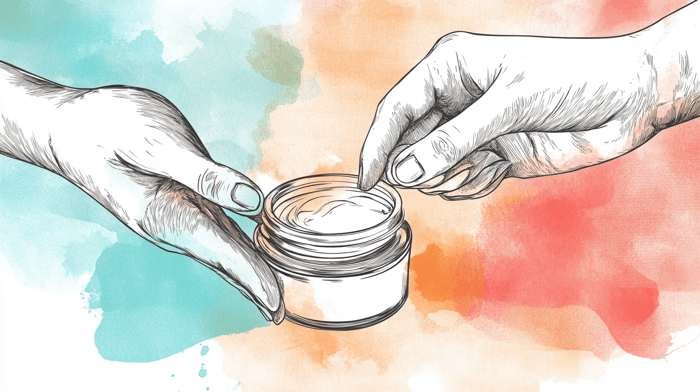Many women invest heavily in skincare for their face, but often neglect the intimate skin around their vulva. This delicate area requires just as much care to prevent issues like dryness, irritation, or discoloration.
In this guide, we’ll discuss how your intimate skin differs from facial skin and share easy-to-follow tips for keeping your vulva looking and feeling soft, healthy, and comfortable.
How Intimate Skin Differs From Facial Skin
Your vulva’s skin may look similar to facial skin, but it’s much more delicate and connected to your reproductive system. While the skin shares common traits like hair and sweat glands, there are key differences:
- The Vulva is the "Door" to the Vagina: The skin of the vulva is the gateway to the vagina, sharing a similar pH (3.8 to 4.5) and a microbiome that helps protect against harmful bacteria.
- Thinner Skin: Intimate skin is thinner and more prone to irritation, making it susceptible to issues like razor burns, rashes, and chafing.
- Natural Flora: Your vulva has its own ecosystem that supports the vagina’s health by maintaining a balanced environment.
Essential Skincare Tips for Intimate Skin
Unlike facial skin, your intimate skin doesn’t require a complex routine. Instead, focus on a few simple steps to keep it healthy:
- Avoid Harsh Products: Use only warm water or a mild, chemical-free intimate soap to cleanse. Avoid unverified feminine hygiene products.
- Moisturize: If you experience dryness, use a moisturizer specifically designed for intimate skin.
- Breathable Clothing: Wear cotton underwear to reduce odor and prevent infections. Avoid synthetic fabrics that can cause irritation and discomfort.
Additional Tips for Optimal Intimate Health
- Balance Your pH: Regularly check your pH with a kit and reset it with a pH wash or boric acid suppositories if needed.
- Anti-Chafing Cream: Use a good anti-chafing cream if you are physically active or prone to irritation.
- Postpartum and Menopause Care: During hormone changes, such as after giving birth or during menopause, invest in specialized moisturizers to keep your skin supple.
Ingredients to Avoid in Feminine Products
Harsh chemicals can disrupt the balance of your intimate skin. Avoid these ingredients:
- Alcohol: Extremely drying and often found in deodorants.
- Fragrances: They can cause irritation and throw off the natural scent of the vagina.
- Parabens and Sulfates: Known to disrupt the microbiome and strip natural oils.
- Mineral Oils: Can block pores, leading to irritation and discomfort.
Ingredients to Look for in Feminine Products
Choose products with these beneficial ingredients for optimal intimate skin health:
- Aloe Vera: Soothes irritated skin.
- Chamomile: Calming and soothing for sensitive areas.
- Hyaluronic Acid: Helps retain moisture and keep the skin hydrated.
- Tea Tree Oil: Antibacterial, but use in very diluted forms.
- Probiotics: Support the natural flora, maintaining vaginal health.
Treatment Options for Vulvar Issues
If you experience dryness, irritation, or infections, try these remedies:
- Apply coconut oil to soothe minor irritations.
- Use cold compresses for relief.
If the issues persist, consult your doctor for treatments such as antifungal creams or laser therapy for more serious conditions.
When to Consult a Dermatologist
If you notice unusual symptoms such as constant itching, changes in skin color, or chronic dryness, it’s time to see a dermatologist. Early consultation can help prevent more serious issues.
Conclusion
Just like your facial skin, your intimate skin deserves care and attention. By following these tips, you can maintain a healthy and supple vulva, ensuring comfort and confidence every day.











